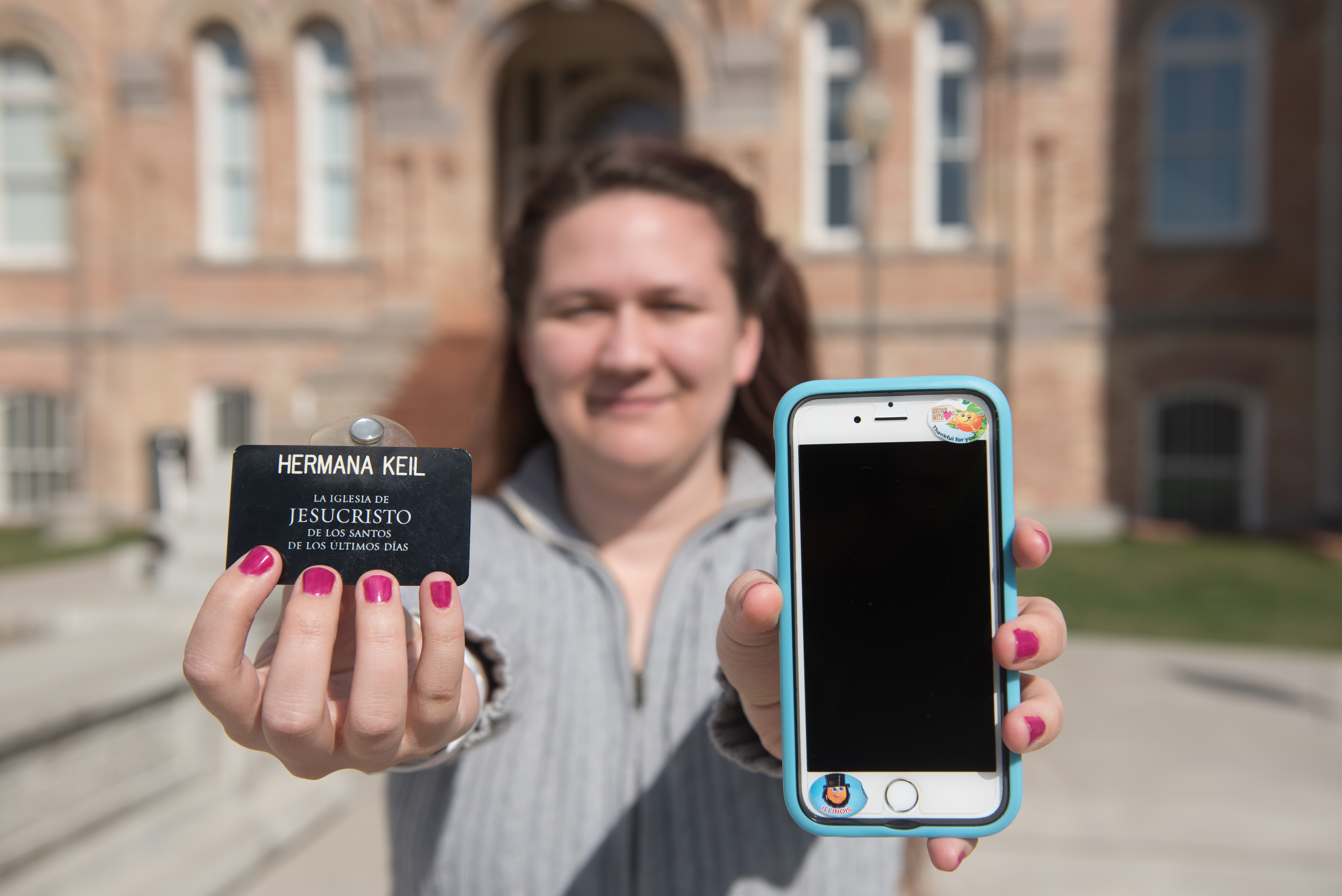
Holmgren received her undergraduate degree in marriage, family and human development, and has been focusing her graduate studies on addictive media use, termed pathological media use.
“I think a lot of us are pretty dependent on our phones, and a lot of people are pretty habitual in phone use, sitting on the bus scrolling Instagram because they’re bored or checking your phone when you feel awkward at a party,” Holmgren said.
Despite high dependence only 10 percent of the U.S. qualifies as pathological cell phone users, according to Holmgren.
Holmgren said she has heard many stories of missionaries entering the MTC and feeling as if a phantom phone is vibrating in their pocket. However, because most are not addicted, they will not experience any major symptoms.
The criteria for a pathological label include withdrawal symptoms, conflict with others over cellphone use, a need to use it more and more to be satisfied, euphoric high and problems arising from neglecting other activities.
Former Spokane Washington Mission president Don Mullen and his wife, Melonie, teach missionary preparation classes at BYU and challenged their students at the beginning of the semester to make a goal of using their cellphones less over the semester.
Students’ goals varied from limiting time on cellphones per day to eliminating social media. Students reported the effects of their goals weeks after setting them.
Rather than anxiety, stress or fear of missing out, the students expressed a sense of freedom, relief, productivity and greater spiritual sensitivity.
BYU student Jordan Coburn taught English as a second language in the MTC and said her students only wanted smartphones to access Google Translate, not to text their friends.
BYU student Marion House served in the North Dakota Bismarck Mission and said she remembers the occasional phantom vibrations but mostly felt relieved.
“I didn’t have to worry about responding to a bunch of text messages,” House said.




